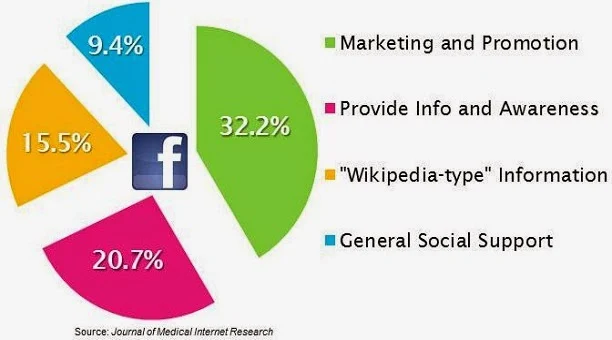How Are Disease-Related Facebook Pages Used?
iHealthBeat, Wednesday, August 13, 2014
A study published in the Journal of Medical Internet Research finds 32.2% of Facebook pages about diseases are for marketing and promotional purposes, while just 9.4% of such pages are used for general social support.The study also shows:
- 20.7% of disease-related Facebook pages aim to raise awareness; and
- 15.5% provide Wikipedia-type information.
Source: iHealthBeat, Wednesday, August 13, 2014

No comments:
Post a Comment